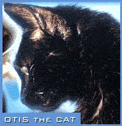Brian Hare —a professor in Evolutionary Anthropology, Psychology, and Neuroscience at Duke University, where he founded the Duke Canine Cognition Center, and co-author (with Vanessa Woods) of “Survival of the Friendliest: Understanding Our Origins and Rediscovering Our Common Humanity”—explains why, as a self-described “dog guy,” creator of the Canine Cognition Center, and who’s previous book (also co-written with Woods) was “The Genius of Dogs,” the new book, in defying reasonable expectations, is not a dog book.  From there, Hare recounts how he and Woods pursued and developed a fundamental premise of the new book: examining how an inclination toward friendliness helps allow species to live more successfully with their counterparts. And how the absence of that predisposition—the dark side of it—can lead to dehumanizing others. On a not unrelated note, Hare discusses how they completed the manuscript in October of 2016, but in observing what unfolded in the next few months, and the changes that were occurring in the country,
From there, Hare recounts how he and Woods pursued and developed a fundamental premise of the new book: examining how an inclination toward friendliness helps allow species to live more successfully with their counterparts. And how the absence of that predisposition—the dark side of it—can lead to dehumanizing others. On a not unrelated note, Hare discusses how they completed the manuscript in October of 2016, but in observing what unfolded in the next few months, and the changes that were occurring in the country,  proposed to their editor that they discard the second half of the book, conduct further research, and write a new second half. Later, as part of a discussion about bonobos—arguably, the stars of “Survival of the Friendliest,” and probably the best species (not just because they believe sex solves damn near every problem)—Hare outlines, as a measure of how powerful the inclination toward friendliness can be, examples of how, over generations, that friendliness can play a role in altering an animal’s, or human’s, appearance. We close out the interview with a slightly off-topic conversation about actress-writer-filmmaker Isabella Rossellini–best known in the animal world for “Green Porno,” her series of short films about animals—who provided a blurb for the new book, posted about it recently on her Instagram page, and has become friends with Hare and Woods, before he knew anything about her showbiz career. (http://brianhare.net, https://twitter.com/bharedogguy, https://www.instagram.com/dukecaninecognition/)
proposed to their editor that they discard the second half of the book, conduct further research, and write a new second half. Later, as part of a discussion about bonobos—arguably, the stars of “Survival of the Friendliest,” and probably the best species (not just because they believe sex solves damn near every problem)—Hare outlines, as a measure of how powerful the inclination toward friendliness can be, examples of how, over generations, that friendliness can play a role in altering an animal’s, or human’s, appearance. We close out the interview with a slightly off-topic conversation about actress-writer-filmmaker Isabella Rossellini–best known in the animal world for “Green Porno,” her series of short films about animals—who provided a blurb for the new book, posted about it recently on her Instagram page, and has become friends with Hare and Woods, before he knew anything about her showbiz career. (http://brianhare.net, https://twitter.com/bharedogguy, https://www.instagram.com/dukecaninecognition/)

ALSO: I spoke briefly with Scott Trebatoski, director of the Hillsborough County Pet Resource Center, as a follow-up to the conversation we had in April, when he described a significant surge in adoptions, owing to the pandemic—specifically, the lockdown seemed to be behind the dramatic increase in the number of people now willing to provide homes to cats and dogs. In that April conversation, we discussed the prospects of that trend reversing itself, as Covid-19 led to widespread job loss, prompting a serious financial struggle hampering the ability to afford to feed and care for those animals, many of whom would be returned to the shelter—a concern echoed by shelter professionals across the country. But Trebatoski says this has not happened at the Pet Resource Center, in part because they have resources available to provide pet food to those whose households are now facing tighter budgets. (https://www.hillsboroughcounty.org/en/locations/pet-resource-center, https://www.facebook.com/PRCPets/)
COMEDY CORNER: Dana Gould’s “Snakes & Alligators” (https://www.danagould.com)
MUSIC: Rebekah Pulley’s “Talking Animals Theme,” instrumentals
NAME THAT ANIMAL TUNE: We didn’t play “Name That Animal Tune” today.
AUDIO ARCHIVE:
Listen Online Now:



